Florian Colombo
Learning to Generate Music with BachProp
Dec 17, 2018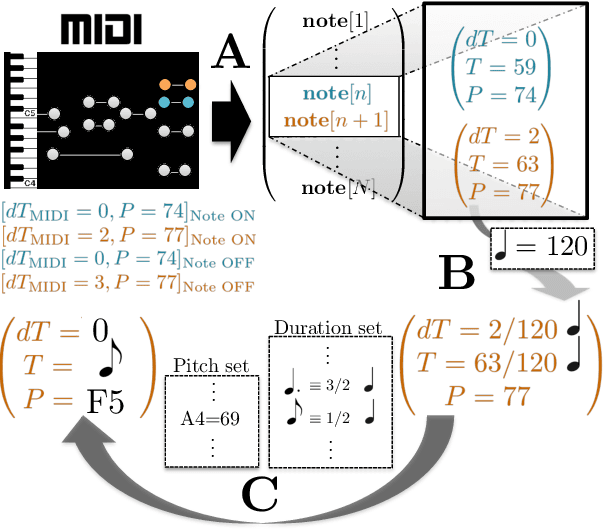
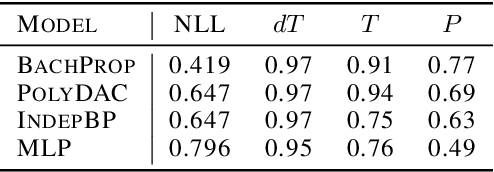
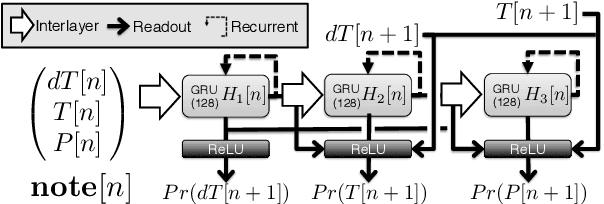

Abstract:As deep learning advances, algorithms of music composition increase in performance. However, most of the successful models are designed for specific musical structures. Here, we present BachProp, an algorithmic composer that can generate music scores in many styles given sufficient training data. To adapt BachProp to a broad range of musical styles, we propose a novel representation of music and train a deep network to predict the note transition probabilities of a given music corpus. In this paper, new music scores generated by BachProp are compared with the original corpora as well as with different network architectures and other related models. We show that BachProp captures important features of the original datasets better than other models and invite the reader to a qualitative comparison on a large collection of generated songs.
Algorithmic Composition of Melodies with Deep Recurrent Neural Networks
Jun 23, 2016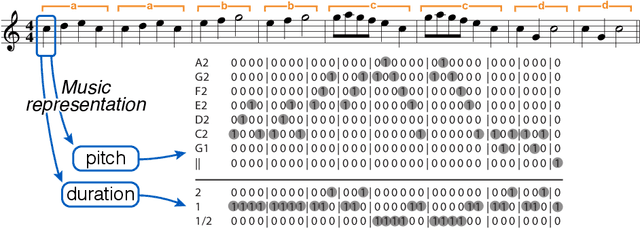

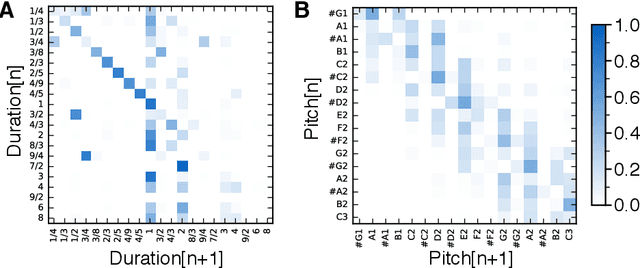
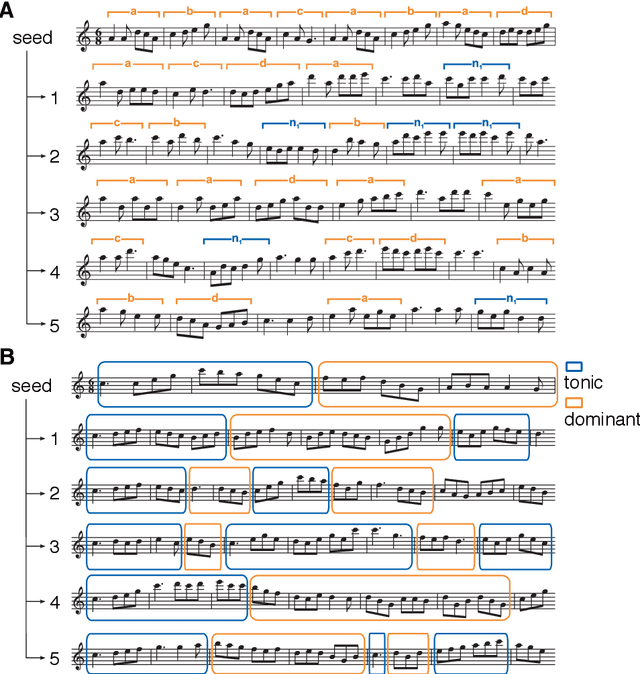
Abstract:A big challenge in algorithmic composition is to devise a model that is both easily trainable and able to reproduce the long-range temporal dependencies typical of music. Here we investigate how artificial neural networks can be trained on a large corpus of melodies and turned into automated music composers able to generate new melodies coherent with the style they have been trained on. We employ gated recurrent unit networks that have been shown to be particularly efficient in learning complex sequential activations with arbitrary long time lags. Our model processes rhythm and melody in parallel while modeling the relation between these two features. Using such an approach, we were able to generate interesting complete melodies or suggest possible continuations of a melody fragment that is coherent with the characteristics of the fragment itself.
 Add to Chrome
Add to Chrome Add to Firefox
Add to Firefox Add to Edge
Add to Edge